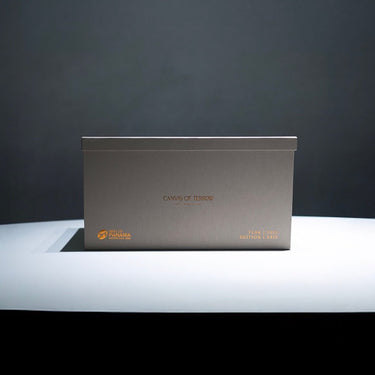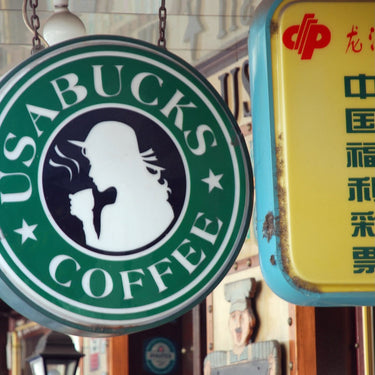So what's the best water
for brewing perfect coffee?
You may have your coffee knowledge down. From being a flavour aficionado to owning the latest and the best barista gear, yet have you ever considered another addition to creating the ideal cup of coffee? That’s right, we’re talking about the water you use, and it turns out whether you choose tap, distilled or filtered, it can make one hell of a big difference to your brew.
What seems like a simple coffee component, actually can get quite scientific when you factor in specific taste. For instance, In certain cases two alternate cups made with exactly the same beans can taste completely different to each other when made from different water sources. Try it yourself, simply brew your favourite coffee with tap water, and then try with bottled mineral water, does it taste different? We bet it does!
The fact is, one cup of coffee is actually 98 percent water, meaning once you’ve carefully chosen the roast and origin of your beans, the water you pair them with can make way more of a difference to the flavour than first thought. This is because water basically acts as a solvent when combined with your coffee, causing a very low key chemical reaction to extract the flavours of the beans.
We’re sure you’re thinking “all this fuss about water, how can there be more decisions to make?’ but we promise, the perfect brew, comes from not just the best beans. A somewhat new focus in the coffee world, water differs through filters, locations and sources. It can get quite technical, we set our sights on studying this as soon as we realised and boy did it make a difference! Here we explain our current findings to you lovely lot and just why exactly your water choice can make the whole world of change to your cup of coffee. Trust us, you’ll taste the difference...
Why does water matter in coffee making?
Well, we all know that water can be both ‘hard’ or ‘soft’ due to the reasons listed above, but when it comes to selecting the right water for your coffee you have to keep in mind the TDS, (that’s total dissolved compounds to us). These usually consist of magnesium, calcium and bicarbonate, the most common mineral elements that have a particularly strong flavour. It’s the balance of these that bring out the sweetness in some beans and the bitterness in others, it’s a fine art, but every single detail counts. Have you ever selected the finest beans, used the best brewing techniques only to be disappointed by the outcome? It could be down to the water. The water you choose can take an average cup to an outstanding, memorable brew and, sadly, vice versa.
So what is the best water
to use when making coffee?
Usually you have three options here, filtered, distilled and purified. Though your water should be completely neutral, (somewhere with a pH between 6.5 and 7.5 is acceptable). We don’t want to state the obvious here but your water should be clean, clear and fresh - no musty smells or mucky hues that sometimes can occur, particularly in reusable water bottles. Your water should have a mineral content of around 150 parts per million (ppm), while the best water pH for coffee is 7.0 (neutral).
Let's break down your options:
Filtered: This is simply water that has been cleaned of any major impurities yet still has most of the natural minerals. A normal filter (such as Brita water filter) will remove any excess carbon or negative taste, allowing for a fuller flavour with your next brew.
Purified: Whilst this has been thoroughly cleaned up, purified water usually has all of the bad elements removed, yet also most of the good minerals are removed also. Often, purifying systems like reverse osmosis can add the minerals back into the water, however this is a lengthy process to do on the daily!
Distilled: Rather similar to filtered, distilled is not great for coffee making (unless you’re brewing your grounds under pressure, making an espresso for instance). All in all, distilled is much better than tap.

What does good coffee water taste like?
First up, to state the obvious, you should never make a coffee with water that doesn’t taste good on its own. Your water should be clean and free of odours or any colourings. At a neutral PH, ideally the best water for coffee making has around 150 mg/L of total dissolved solids (TDS). You’re also looking for near 10 mg/L of sodium, 40 mg/L total alkalinity and 0mg/L of chlorine.
You can find out information about the water in your area by checking the website of your local water supplier.
Is it OK to use distilled
water to make coffee?
We wouldn't recommend using pure distilled or reverse osmosis (RO) water for your coffee brew. This is because they are too pure to brew with, leaving most, if not all, of the flavour behind. Bottled water, in this case, tends to be the best option, with own-brand supermarket waters tend to be lower in mineral content compared to the big brand waters.
How about tap water for making coffee?
As mentioned above, this all depends on your location and you can check the specifics of yours with your water supply company - most publish their data online. Or you can pick up an at home water testing kit, which will highlight all of the key elements. If you have an inbuilt filter into your tap (for the tech savvy lot) you can use this to brew up your morning coffee with ease. However if you live in a hard water area, which many of us do, particularly in cities, the high levels of calcium carbonate will interfere with the taste. Not only affecting the flavour, you also need to be careful as hard water builds up limescale, causing long term issues with your brewing tools and machines.
We hope we’ve provided some useful and relatable scientific advice when it comes to the water for your coffee, it really is worth the extra thought! Next time you create the perfect brew, if you’ve got the water just right, we can guarantee a taste sensation!
Here's a great video introduction to the best water for coffee:
Now that you know you've got your water sorted. Make sure you have the best beans! When it comes to buying coffee beans online, you're fully covered with RAVE.









Hi David, thanks for the question. I know we dropped you a note at the time but figured a response may be useful for anyone looking here. Most supermarket own-brand bottled water is perfectly good for coffee making, we’ve been known to use Ashbesck Water (Tesco) for cupping or Volvic brand. The important this is that they don’t have added minerals and you’re looking for something with a low TDS (total dissolved solids).
It is worth looking at investing in a good filtration system for your water (to avoid plastic waste) ‘Peak Water’ is great as it’s been designed for coffee, by coffee people. Or you could look at the BWT Mineralizer filter jug as another option.
Rave Coffee on
Hi
I live in a very hard water area. Could you recommend a bottled water for making your excellent coffee?
David Allen on